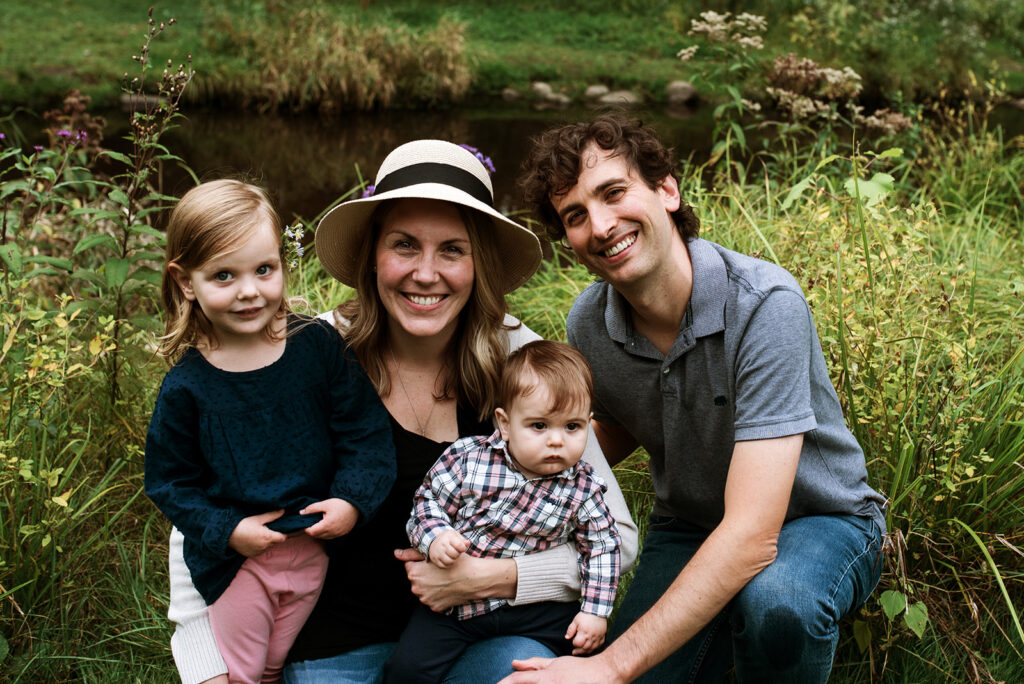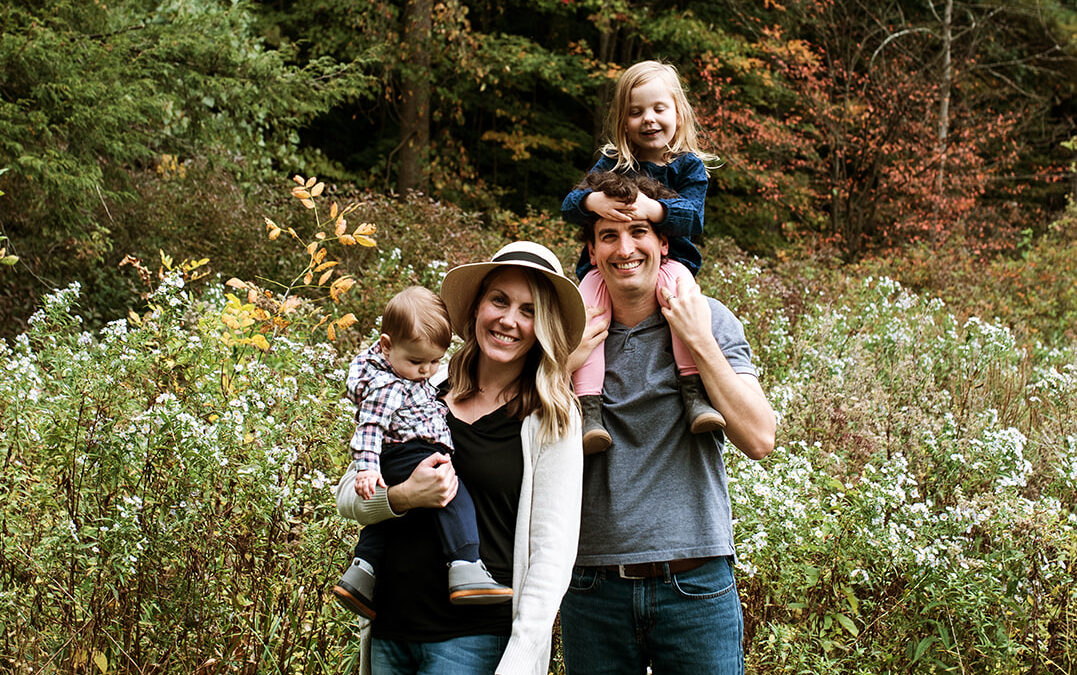Podcast: Play in new window | Download
Subscribe to The Innovative Therapist Podcast! Apple Podcasts | Spotify | RSS | More
Episode 4. Have you ever had a health scare (for you or a loved one) and been frustrated with yourself that it didn’t propel you to make a big lifestyle change?
On today’s episode of the Motivation Made Easy podcast, I talk about our family’s experience learning of our high genetic risk of cancer. I share this as one example of how external fear based motivation can be shifted to internal autonomous motivation and what this has looked like for us.
A Personal Story

Today we are getting personal. I talk first about about having basal cell carcinoma last year and how a recent experience brought up fears about our family history.
I share that my husband has Lynch syndrome, a genetic mutation that greatly increases his risk (and potentially our kids) of many types of cancer.
How to Transform Fear into Positive Progress
When (Fear-Based) External Motivation Does Not Motivate
Have you had a health scare in the past where you really hoped it would propel you to make habit changes in your life, but it didn’t? I know this is extremely common, because I would often talk to patients about this.
They might have recently had a heart attack and be incredibly frustrated with themselves that they weren’t “taking it more seriously.”
I can relate to this, as I think many of us can. In the past, before I stopped dieting, I always hoped that health scares would motivate me to live a healthier life.
I would try to use them as a reason for eating differently (“I have high cholesterol, I shouldn’t have that”) but really when push came to shove, it didn’t work. The motivation was solidly in the external category. “A should” that was not transforming into any internal motivation any time soon.
How to Merge the Eating Disorder & Weight Management Worlds in a Healthy Way
We happened to find out about my husband having Lynch syndrome when I was working in a Preventive Cardiology clinic that recommended plant-based eating. Therefore, I decided to try out the Forks Over Knives Meal Planner as this was often being recommended to our patients.

The Most Shocking Thing I Learned in My Plant-Based Eating Class
I have written about this in the past, but I share again some of the data on how percentage of calories from animal protein is highly linked to cancer risk.
This is another example of how our over focus on weight loss distracts us from the things we actually do have control over (e.g., our habits, how many fresh fruits and vegetable we have on a regular basis).
Take Home Message
I urge you to consider the information you have gotten about your health and your weight. Are you over emphasizing your weight and how much it impacts your health risk?
If you are having a lot of shoulds or fears about your health, I urge you to just notice that, but then turn inward and ask yourself the question, “What do I really want for my life?” “Why is my health important to me?”
Usually our health is important to use because of the things it will allow us to do, now or in the future. If you want more help clarifying this, download my free guide here.
References
Campbell, T. & Campbell, T. C. (2006). The China Study: The Most Comprehensive Study of Nutrition Ever Conducted and the Startling Implications for Diet, Weight Loss, and Long-term Health.
Dunaif, G. E. & Campbell, T. C. (1987). Dietary protein level and aflatoxin B1-induced preneoplastic hepatic lesions in the rat. The Journal of Nutrition, 117, 1298–1302.
Madhavan, T. V. & Gopalan, C. (1968). The effect of dietary protein on carcinogenesis of aflatoxin. Archives of Pathology & Laboratory Medicine, 85, 133-137.
Youngman, L.D., & Campbell, T. C. (1992). Inhibition of aflatoxin B1-induced gamma-glutamyl transpeptidase positive (GGT+) hepatic preneoplastic foci and tumors by low protein diets: evidence that altered GGT+ foci indicate neoplastic potential. Carcinogenesis, 13, 1607–1613.
Youngman, L. D., & Campbell, T. C. (1991). High protein intake promotes the growth of preneoplastic foci in Fischer #344 rats: evidence that early remodeled foci retain the potential for future growth. The Journal of Nutrition, 121.

As someone who has struggled with their health since I was young, I relate to this so much. I was and still sometimes can be so fearful of how my disease can affect me and my future. Such a strong and empowering message to spread about transforming that fear into motivation. Love it so much 🙂
Thank you so much for your comment and your honestly, Julia! So glad you liked it. 🙂
Love to connect with you on the topic of motivation . Just released book on Lessons for tomorrow’s leaders. Also overcame scoliosis as teen . My last show is on the page women inspired.
https://anchor.fm/sarah-garnham/episodes/Episode-6—Hope—With-Rosalyn-Kahn-epo4ij
Thanks Rosalyn, I will check it out and be in touch! 🙂